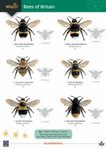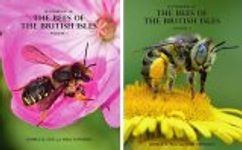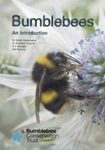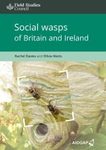Identification Key Monograph
By: Richard Jones(Author)
368 pages, 250 colour & b/w photos and b/w illustrations, colour tables
Clear, concise and thoroughly entertaining, this is an extraordinary insight into all things ant.
![Ants Ants]()
Click to have a closer look
About this book
Contents
Customer reviews
Biography
Related titles
About this book
Ants are everywhere, though they are small, secretive, easily overlooked and usually misunderstood. But these seemingly puny insects have a superpower that makes them amongst the most important organisms on the planet – what they lack in size and individual strength, they more than make up for in sheer numbers and sophisticated, coordinated activity.
In this book, impassioned entomologist Richard Jones reveals the bizarre and sometimes poorly studied behaviours of ants. Their aggregation in large (often mind-bogglingly huge) nests is a complex mix of genetics, chemistry, geography and higher social interaction. Their forage trails, usually to aphid colonies but occasionally into the larder, are maintained by a wondrous alchemy of molecular scents and markers. Their social colony structure confused natural philosophers of old and still taxes the modern biologist today. And flying ant days regularly make national news as airborne swarms interfere with international tennis matches. Despite being tiny, ants are special because they and their complex colonies are amenable to scientific interrogation beyond that offered by most other insect groups.
Starting with a straightforward look at ant body structure, Jones then explores the ant species found in the British Isles and parts of nearby mainland Europe, their foraging, nesting, navigating and battle instincts, how ants interact with the landscape, their evolution, and their place in our understanding of how life on earth works.
Contents
Preface 6
1. What's so special about ants? 10
2. What is an ant? 30
3. The ants of Britain and Ireland 64
4. Evolution of ants 112
5. Being an everyday ant 128
6. The rise of the colony 174
7. Human interactions with ants 210
8. Ant interactions with other species 242
9. Ants in the landscape 276
10. How to study ants 298
Appendix: Identification key 328
Glossary 342
References 344
Illustration credits 356
Acknowledgements 358
Index 359
Customer Reviews
Biography
Richard Jones is a nationally acclaimed entomologist, a fellow of the Royal Entomological Society, fellow of the Linnean Society, and past president of the British Entomological and Natural History Society. He has been fascinated by wildlife since a childhood exploring the South Downs and Sussex Weald after plants and insects. He now writes about insects, nature and the environment for BBC Wildlife, Gardener's World, Countryfile, The Sunday Times, New Scientist and The Guardian and has regular TV and radio appearances on such programmes as Home Planet, Woman's Hour, Natural Histories, Open Country and Springwatch Unsprung. He is author of several books on science and wildlife including Nano Nature, Extreme Insects, The Little Book of Nits, House Guests, House Pests, Call of Nature, and the Beetles volume in the New Naturalist series.
Identification Key Monograph
By: Richard Jones(Author)
368 pages, 250 colour & b/w photos and b/w illustrations, colour tables
Clear, concise and thoroughly entertaining, this is an extraordinary insight into all things ant.













































